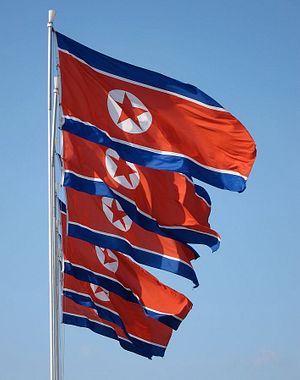Over the past few weeks, North Korea has made headlines for increasingly strict measures designed to prevent the outbreak of the new coronavirus, such as controlling its borders, banning tourists, and imposing a quarantine and medical observation period on newly-arriving foreigners.
The moves mentioned above, however, are among the relatively “normal” measures taken by the North Korean authorities.
True to its reputation as one of the most isolated and strictly governed countries in the world, North Korea appears to have adopted somewhat bizarre tactics to tackle the virus, according to some media reports.
The latest example is Pyongyang’s decision to make cremation mandatory in the country. North Korea’s central government reportedly ordered health and local authorities to burn all dead bodies, according to a North Korea-based source who spoke to Daily NK.
It is not uncommon to burn dead bodies to kill any viruses carried by the deceased, but residents in the North are unhappy with the decision since the government is preventing them from having a funeral and cremation is now mandatory regardless of the cause of the death. In a country that still practices many Confucian-based death rituals, required cremation makes mourning difficult.
The lack of cremation facilities in the country and the fact that some residents need to pay for cremation without government aid have further stirred up poplar resentment against the government’s decision, the source told Daily NK.
Meanwhile, North Korea is claiming that burdock is a cure for the coronavirus and promoting a medicine made with it.
Amid the fear of the virus, it is all too common to see rumors or disinformation about possible, but unconfirmed, cures for the coronavirus spreading online. But the difference in North Korea is that the government itself is officially pushing a weed as a cure for the virus.
North Korea’s state-run propaganda website Sogwang published an article on February 9 to promote the medicine “Burdock Antivirus Solution.”
“It is a strong drug that stops the virus from replicating and inhibits its proliferation. This drug has a treatment efficiency of more than 90 percent and is extremely therapeutic compared to other drugs and has little side effects despite its short treatment period,” the website boasted.
Sogwang added that North Korea is gearing up to mass produce the medicine as it has proven its superiority in the past by showing a distinct effect in the prevention and treatment of various infectious diseases, including measles and influenza.
It also appears that Pyongyang has not forgotten to secure resources for virus prevention efforts through its favorite money-making channel: foreign workers. North Korea has reportedly ordered its workers in China to donate to funds that can be used for domestic disease control.
Each worker has been specifically ordered to prepare 1,500 Chinese yuan ($215) for such funds, although many workers are struggling to secure that amount amid a drop in the number of customers at North Korean restaurants and a lack of orders at factories. Many businesses remain closed due to the outbreak of the coronavirus in China.
North Korea has repeatedly stressed that no case of the coronavirus has been confirmed in the country.
However, it is difficult to trust Pyongyang’s words as the country has refused to disclose or report on the spread of epidemics in the past, fearing that doing so could cause internal turmoil or pose a threat to the regime.
North Korean media, for instance, reported in detail the number of deaths worldwide caused by Severe Acute Respiratory Syndrome (SARS) in 2003, the Ebola virus in 2014, and Middle East Respiratory Syndrome (MERS) in 2015, but did not report the domestic situation.
When the H1N1 flu outbreak occurred in 2009, the disease was prevalent worldwide beginning in May that year, but the North claimed there was not a single case in the country. However, in December 2009, months after the outbreak began, the North Korean authorities belatedly said in a statement carried by the Korean Central News Agency that there were nine patients, including in Pyongyang and Sinuiju.
Given its previous reaction to epidemics, and the high level of travel between China, the epicenter of the outbreak, and North Korea, it is highly likely there have been cases in the North. Several news reports quoting internal sources have said that some people have already died due to the virus in the country. All these bizarre measures to tackle the coronavirus makes the North’s insistence that there are no cases even more suspicious.
































